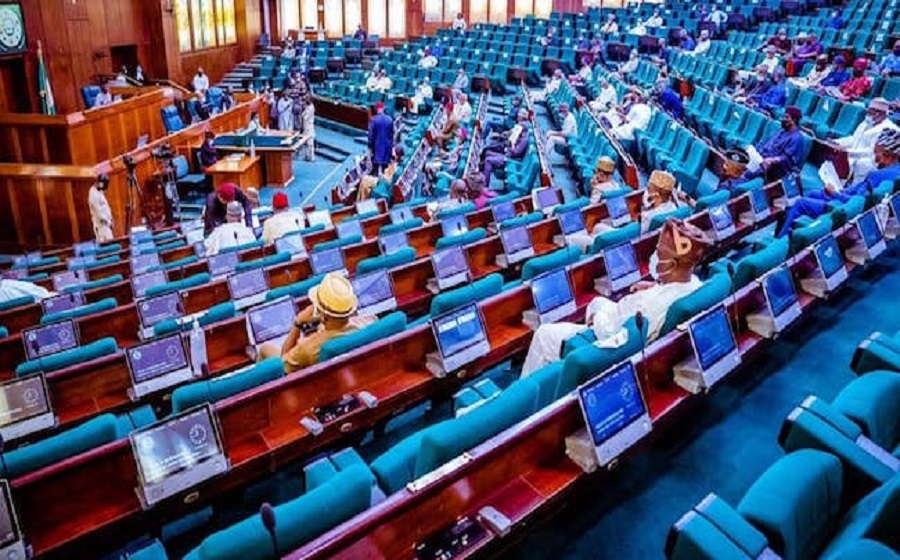The House of Representatives has resolved to set up an Ad-hoc Committee to investigate the Petroleum Products Subsidy regime in Nigeria from 2017 to 2021.
The resolution was passed following the adoption of a motion sponsored by Sergius Ose Ogun, who emphasised the need for accountability of public office holders managing the nation’s economy.
In his lead debate, Ogun who was not happy about the secrecy behind the application of the public funds being expended on the fuel subsidy regime alleged that Nigerian National Petroleum Company (NPC) Limited, found it more convenient to export domestic crude in exchange for petroleum products on trade by barter basis described as Direct Sales Direct Purchase (DSDP) arrangement.
He lamented that the consumption rate of Petroleum Motor Spirit (PMS) is 40million to 45million litres per day, however, the NPC uses 65 million to 100 million litres per day to determine subsidy as discoverable from NNPC’s monthly reports to the Federal Allocation Committee (FAAC).
The lawmaker said; “The House notes that section 88 (1) and (2) of the Constitution of the Federal Republic of Nigeria (As Amended) empowers the National Assembly to conduct investigations into the activities of any authority executing or administering laws made by the National Assembly.
“The House also notes that Section 32 of the Petroleum Industry Act, 2021 saddles the Petroleum Midstream and Downstream Regulatory Authority with the task of regulating and monitoring technical and commercial midstream and downstream petroleum operations in Nigeria. The House is informed that as of 2002, the NNPC’s purchase of crude oil at international market prices stood at 445,000 barrels per day in order to enable it to provide petroleum products for local consumption.
“The House is informed that as of 2002, the NNPC’s purchase of crude oil at international market prices stood at 445,000 barrels per day in order to enable it to provide petroleum products for local consumption.”
“The House is concerned that as of 2002, the installed capacity of Nigeria’s local refineries stood at 445,000 barrels per day, however, their capacity utilization began to nosedive and eventually fell completely to zero due to the ineffectiveness and alleged corruption of critical stakeholders in the value chain.
“The House is aware that due to the decline in the production capacity of the refineries, NNPC found it more convenient to export domestic crude in exchange for petroleum products on trade by barter basis described as Direct Sales Direct Purchase (DSDP) arrangement. The House is also aware that component costs in the petroleum products subsidy value chain claimed by the NNPC is highly over-bloated while the transfer pump price per litre used by the NNPC in relation to PPMC is underquoted as N123-N128 instead of N162-N165 and this fraudulent under-reporting of N37-N39 per litre translates into over 70 billion naira a month or 840 billion naira a year.
“The House is worried that the consumption rate of Petroleum Motor Spirit (PMS) is 40million to 45million litres per day, however, the NNPC uses 65 million to 100 million litres per day to determine subsidy as discoverable from NNPC’s monthly reports to the Federal Allocation Committee (FAAC). The House is also worried that the subsidy regime has been unscrupulously used by the NNPC and other critical stakeholders to subvert the nation’s crude oil revenue to the tune of over 10 billion US dollars, with records showing that as of 2021, over 7 billion US dollars in over 120 million barrels have been so diverted.
“The House is disturbed that there exists evidence that subsidy amounts are being duplicated, thus subsidy is charged against petroleum products sales in the books of NNPC as well as against crude oil revenue in the books of NAPIMS to the tune of over N2 trillion,” Ogun noted.
He said that records showed that as of 2021, over seven billion dollars of 120 million barrels was diverted.
He also alleged that there was evidence that subsidy amounts were being duplicated.
Hon Ogun maintained that the daily consumption of Petroleum Motor Spirit (PMS), was 40 million to 45million litres per day, as against NNPC’s claim of 65 million to 100 million litres per day.
VON



